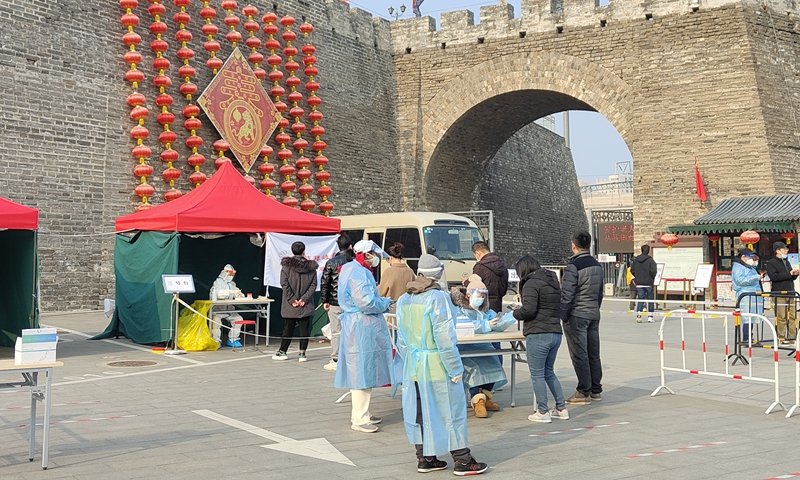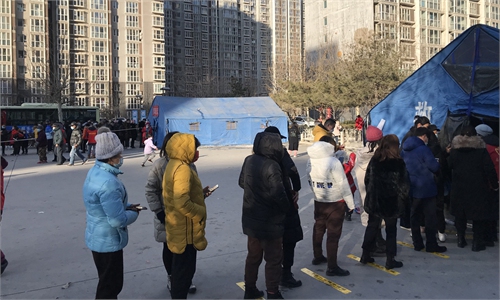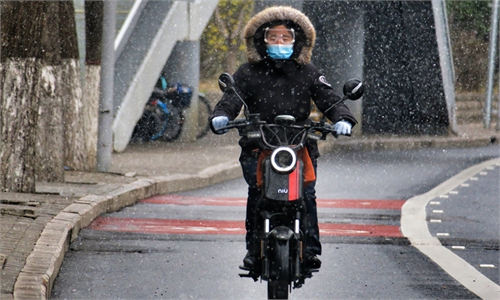Beijing to strictly enforce emergency response mechanism for cross-province transportation

Residents take nucleic acid tests at a testing spot in Dongcheng district in Beijing on March 23. Photo: VCG
Beijing will strictly enforce an emergency response mechanism for cross-province transportation, according to Beijing Municipal Commission of Transport on Wednesday.
As of Monday, a total of 211 inter-provincial public transportation routes were suspended between Beijing and cities in North China's Hebei, Tianjin, Shanxi, Inner Mongolia, East China's Shandong, Jiangsu, Anhui and other provinces, with 548 vehicles taken off the roads. The city will timely suspend cross-province passenger transport services to and from areas reporting COVID-19 cases, according to the transport commission.
In transportation hubs in the city, the waiting hall seats, handrails, the interior of elevator cars, restrooms, mother and childcare rooms, barrier-free facilities and equipment should be disinfected once every four hours. Transfer halls, restrooms, stores and other public and office areas must be ventilated at least once every two hours. Open areas should be continuously maintained with natural ventilation.
Beijing reported seven COVID-19 infections on Tuesday and the city's Center for Disease Control said the situation of the epidemic remains serious.
Xu Hejian, spokesperson of the Beijing municipal government, said that it is important to resolutely prevent the importation of the virus from areas around Beijing and strictly inspect the entrances to the city.
An elementary school in Chaoyang district, which reported cases among its students, announced the complete suspension of classes on its campus.
The city's elderly services, children's welfare and service institutions for people with disabilities are now under closed management with suspension of visits, outings and new admissions, said Li Hongbing, Deputy Director of the city's Civil Affairs Bureau.
There are more than 48,000 seniors staying in elderly service institutions with 40 percent of them having taken the first dose of COVID-19 vaccine, Li said.


